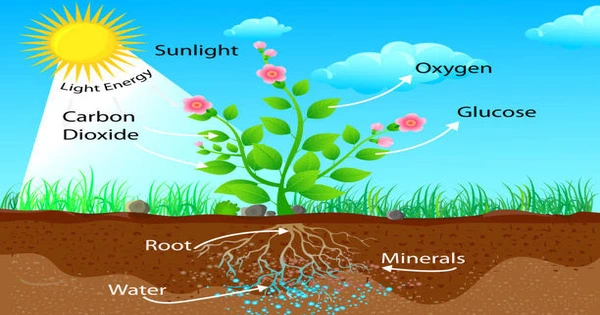Plant nutrition is the study of the chemical components and compounds required for plant growth and reproduction, plant metabolism, and their external supply. It refers to the process by which plants absorb and use needed nutrients for growth, development, and overall health. These nutrients are essential for a variety of physiological activities within plants, including photosynthesis, cell division, and energy production.
In its absence, the plant is unable to complete its regular life cycle, or the element is a component of some vital plant ingredient or metabolite. This is consistent with Justus von Liebig’s law of the minimum. Plants require various critical nutrients for proper growth, which are divided into two categories: macronutrients and micronutrients.
Carbon, oxygen, and hydrogen are absorbed from the air, whilst other nutrients, including nitrogen, are normally received from the soil (exceptions include some parasitic or carnivorous plants).
Plants must obtain the following mineral nutrients from their growing medium:
- the macronutrients: nitrogen (N), phosphorus (P), potassium (K), calcium (Ca), sulfur (S), magnesium (Mg)
- the micronutrients (or trace minerals): iron (Fe), boron (B), chlorine (Cl), manganese (Mn), zinc (Zn), copper (Cu), molybdenum (Mo), nickel (Ni)
These important nutrients are obtained by plants through their root systems from the soil. However, factors such as soil pH, organic matter level, and the presence of competing plants or microorganisms can all affect the availability of these nutrients. Supplemental fertilization is often required to ensure that plants receive an adequate supply of nutrients for healthy growth.
Because these elements remain in the soil as salts, plants take them as ions. The macronutrients are absorbed in greater amounts; hydrogen, oxygen, nitrogen, and carbon account for more than 95% of a plant’s total biomass on a dry matter weight basis. Plant tissue contains micronutrients in amounts measured in parts per million (ppm), ranging from 0.1 to 200 ppm, or less than 0.02% dry weight.
Understanding plant nutrition is critical for farmers, gardeners, and horticulturists because it allows them to make educated decisions about soil management, fertilizer application, and plant care in order to maximize crop yields and overall plant health.
















